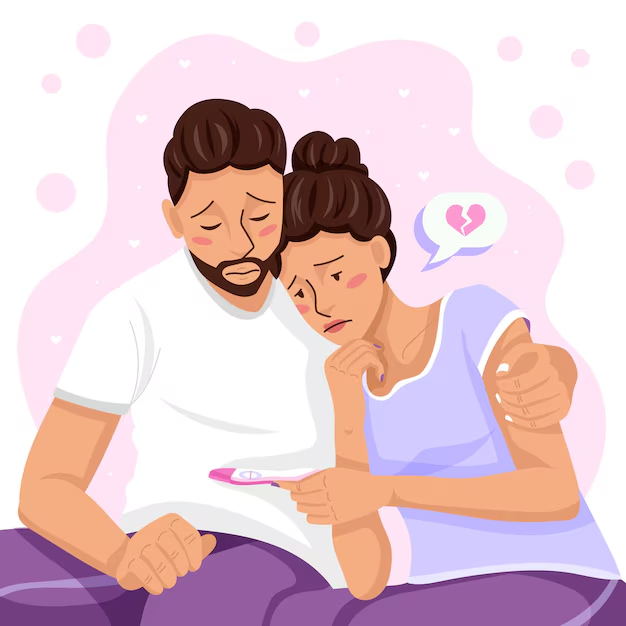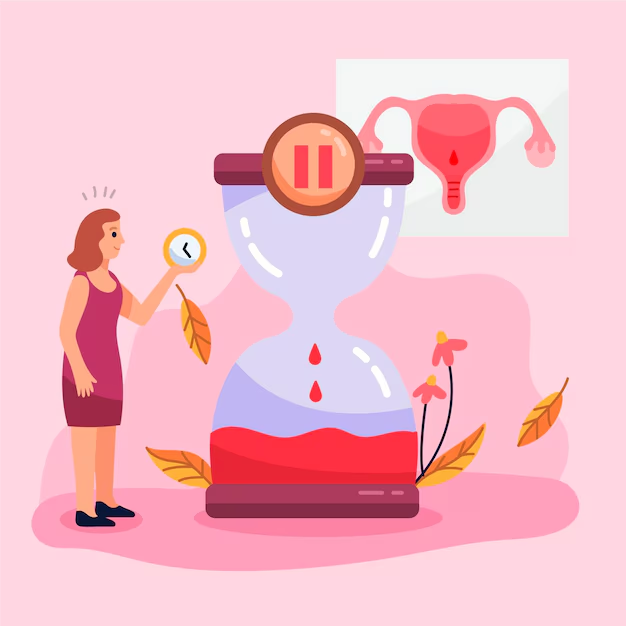Signs of PMS-related anxiety

As many as 75% of menstruating women experience some form of premenstrual syndrome (PMS). While bloating, cramps, and fatigue are common physical symptoms, the emotional and mental side of PMS often goes unnoticed. One of the most challenging aspects is PMS-related anxiety, a condition that can affect daily life, relationships, and overall wellbeing.
Understanding the signs of PMS-related anxiety is the first step toward better mental health and effective cycle tracking. Let’s dive into the symptoms, how to differentiate them from general anxiety, and how you can manage them for a more balanced menstrual experience.
What is PMS-Related Anxiety?
PMS-related anxiety is a type of mood disturbance that occurs in the luteal phase of the menstrual cycle — typically 1 to 2 weeks before your period starts. During this time, hormonal fluctuations, particularly in estrogen and progesterone, can significantly impact brain chemistry, leading to heightened emotional sensitivity, irritability, and in some cases, anxiety.
Common Signs of PMS-Related Anxiety
1. Restlessness and Feeling on Edge
You might find yourself unusually jumpy, easily startled, or unable to relax. Simple tasks may feel overwhelming, and your brain might constantly run through "what if" scenarios.
2. Increased Worry or Overthinking
Your mind may dwell excessively on small problems, spinning them into larger worries. You might fixate on past events or anticipate worst-case scenarios — especially in work or relationships.
3. Irritability and Short Temper
PMS-related anxiety often presents as frustration or sudden outbursts. You may find yourself snapping at people or feeling unusually agitated over minor issues.
4. Sleep Disturbances
Anxiety can make it hard to fall asleep or stay asleep. You may toss and turn at night with racing thoughts or wake up feeling unrested despite adequate hours in bed.
5. Physical Symptoms Linked to Anxiety
PMS-related anxiety can be accompanied by:
-
Tightness in the chest
-
Shortness of breath
-
Heart palpitations
-
Muscle tension or jaw clenching
These symptoms may mimic those of general anxiety disorders but are cyclical in nature.
6. Difficulty Concentrating
Brain fog or trouble focusing is common. Tasks that normally come easily might take longer, and you may feel mentally “scattered.”
7. Social Withdrawal
During the days leading up to your period, you might feel emotionally overwhelmed and start avoiding social interactions — even with close friends or family.
PMS-Related Anxiety vs. Generalized Anxiety Disorder (GAD)
It's important to note the difference:
-
PMS-related anxiety is cyclical, peaking in the luteal phase and easing after menstruation begins.
-
GAD is a chronic condition that involves persistent worry throughout the month, not just around your cycle.
If symptoms persist beyond your cycle or interfere significantly with your quality of life, it’s a good idea to consult a mental health professional.
How Tracking Your Cycle Can Help
Understanding your menstrual cycle empowers you to predict and prepare for PMS-related anxiety. Here’s how tracking helps:
-
Identify emotional patterns tied to specific cycle days
-
Plan ahead for self-care during the luteal phase
-
Track sleep, mood, energy levels, and anxiety triggers
-
Communicate your needs more clearly to those around you
Apps, journals, or even simple calendars can be used to log your mental state and better understand your body's natural rhythm.
Coping Strategies for PMS-Related Anxiety
-
Practice Mindfulness and Meditation
Regular mindfulness exercises can reduce the intensity of anxiety by keeping you grounded in the present. -
Exercise Gently
Activities like walking, yoga, or stretching can release endorphins and reduce anxiety levels. -
Stay Hydrated and Eat Balanced Meals
Blood sugar fluctuations can worsen anxiety. Aim for regular, nutritious meals and reduce caffeine and sugar intake. -
Prioritize Sleep
A consistent sleep schedule helps regulate mood and manage stress more effectively. -
Limit Stress Triggers
Delegate tasks, say no when necessary, and avoid emotionally draining interactions during this sensitive phase. -
Talk to Someone
Whether it’s a therapist, friend, or support group, talking about how you feel helps normalize and relieve anxiety.
When to Seek Help
If PMS-related anxiety is significantly affecting your life, you may have Premenstrual Dysphoric Disorder (PMDD) — a more severe form of PMS. In such cases, professional help may include:
-
Cognitive Behavioral Therapy (CBT)
-
Hormonal treatments
-
Antidepressants or anti-anxiety medications
Don’t hesitate to seek help. Mental wellness is just as important as physical health.
Final Thoughts
PMS-related anxiety is real, valid, and manageable. Recognizing the signs and tracking your cycle allows you to take proactive steps toward emotional balance and self-care. Every woman’s body is different, but awareness is the foundation of empowerment.
Start today. Track your cycle. Understand your emotions. And make space for your mental wellbeing — every day of the month.
Related Articles

he Best Time to Get Pregnant: Understanding Your Ovulation Cycle

Avoiding risky movements

Staying off social media breaks

Skincare for stretch marks

Natural masks for glowing skin

Choosing a pediatrician

Miscarriage Myths and Facts: First Trimester Risks

Yoga stretches for pregnancy